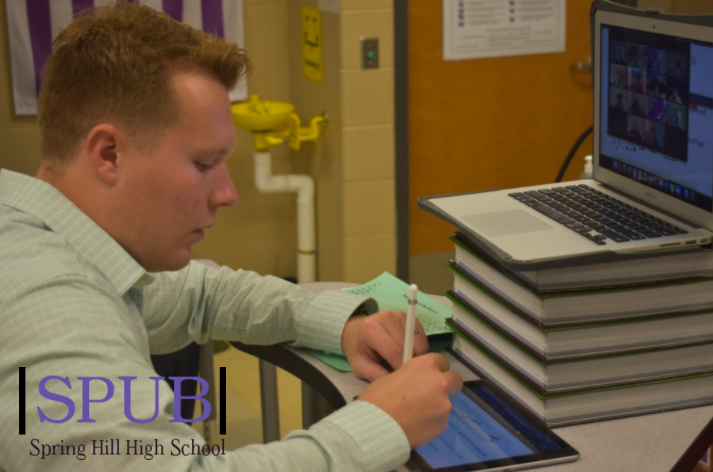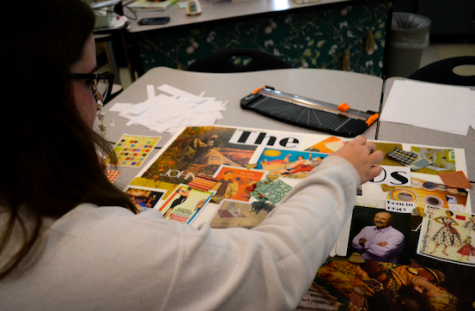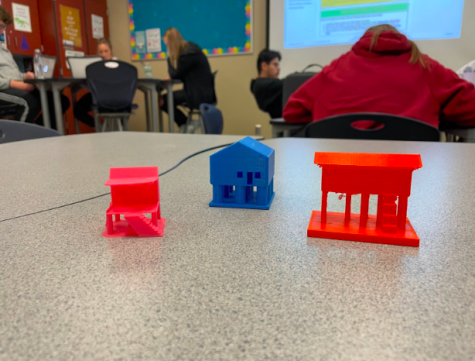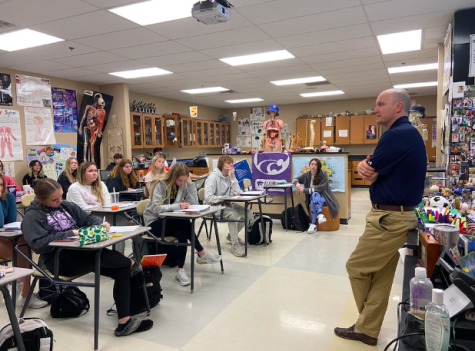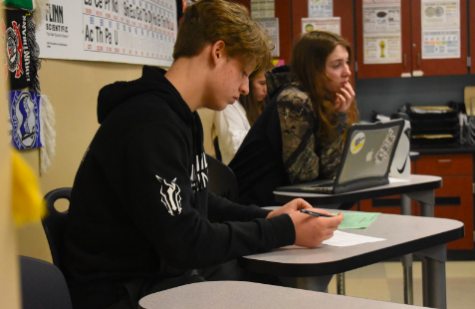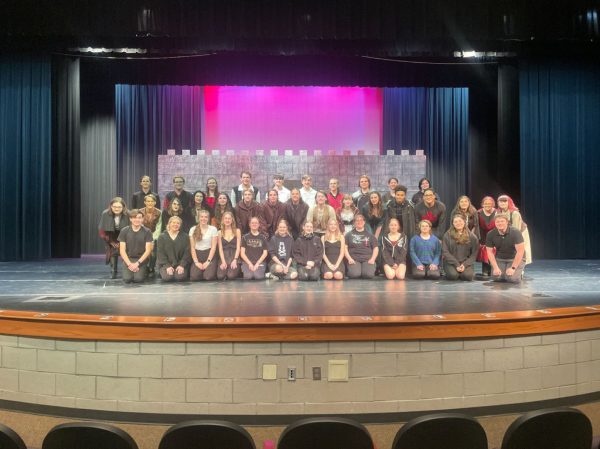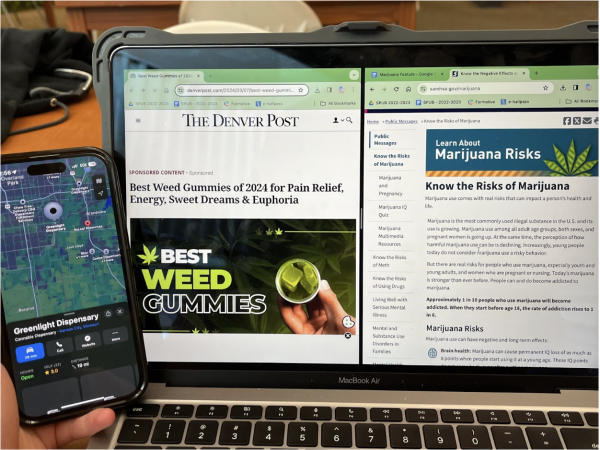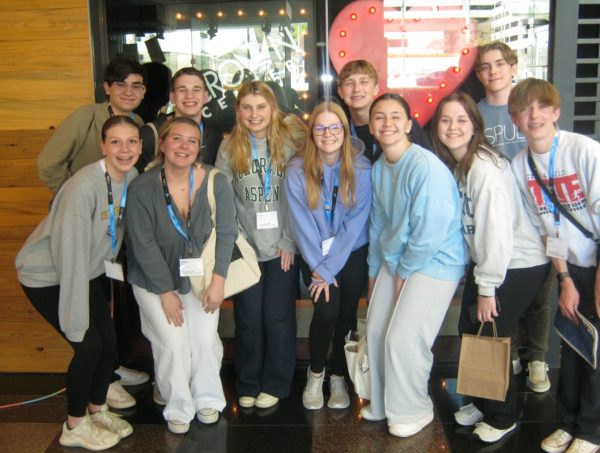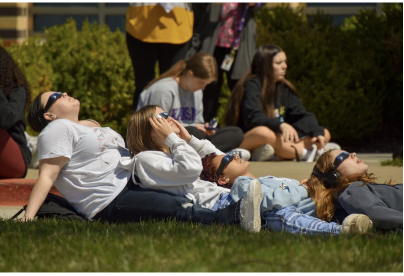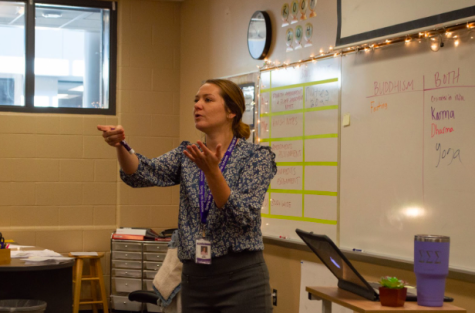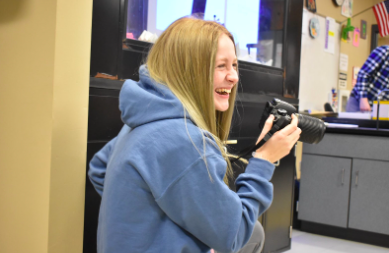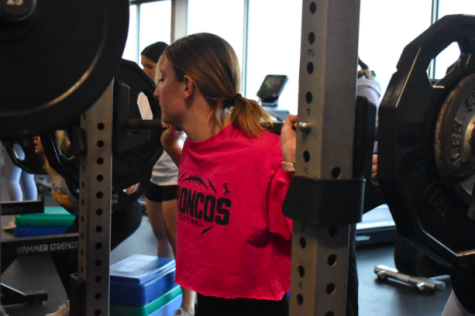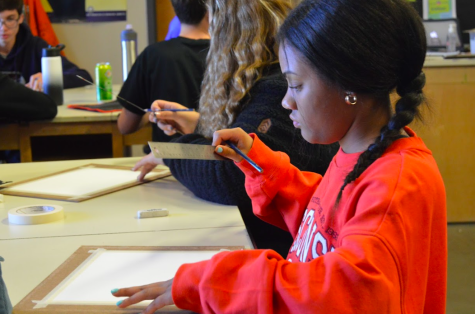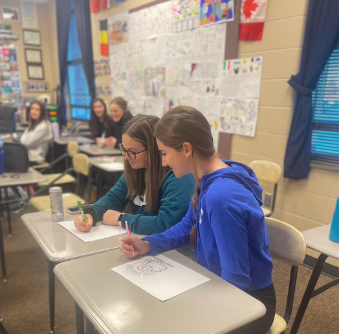Different Effects
AP and College-level students take on additional challenges
Every year teachers have to face difficult challenges. While last spring that was brought to the forefront of the public eye, this spring brought even more challenges. Especially for those tasked with teaching a class as an accelerated pace.
“My concern started when the school year was delayed because the AP test is a set date…the fact that we postponed school by two and a half weeks, that’s huge. That’s a whole unit that now I have to make up in other places,” said Gissel McDonald, AP Chemistry teacher.
There were other concerns, too, among those how best to do labs.
“Especially with College Bio[logy] being a lab-based class. The requirements with Johnson County [Community College] were in class five hours a week, we are supposed to spend three of those hours in lecture and two in lab,” said Stephanie Higgs, College Biology teacher.
But mostly there were concerns about the students.
“Honestly, [my] only [concern] was for the kids who had never taken an advanced class before,” said Stephanie Hojnacki, Honors Algebra Two teacher.
The students had concerns too. Ethan Carpenter, 11, is enrolled in two AP classes and a college-level Calculus class. He wasn’t nervous about them before the pandemic started, feeling that as long as he prepared himself it would be okay, but it was another story after the pandemic struck.
“At first I felt concerned because I thought ‘oh well uh oh’ now that means we are going to have to do a lot of self teaching and that means that it’s going to be harder to learn the more difficult material,” said Carpenter.
But as the year started some students found that though things were different and maybe in some cases harder there teachers were still there for them.
“[It turned out] sort of like that, we did have to do a lot of guiding ourselves, we had to stay self-motivated, but teachers were still very enthusiastic to help us in any way they could. If we emailed them or asked for help in any way it would be okay,” said Carpenter.
Some students even found they liked the freedom.
“I think things went well [while we were online]…I [especially liked that] I had more freedom. I could make my own lunch and just generally had more freedom ” said Elise Belcher, who is enrolled in both AP Language and Composition and College level algebra class, 11.
However, it wasn’t all smooth sailing.
“It was a lot harder to retain the knowledge, it was more like we were shoving it in our brains and regurgitating it for the [unit] tests and never remembering it, I feel like being back in school it’s easier to retain that information,” said Mia Anderton, who like Carpenter is enrolled in two AP classes and a college-level Calculus class, 11.
She compared it to being told a story. That if a person is just told a story they won’t remember it as well as if they experienced what happened in the story.
While everyone had concerns about what would happen, they all feel confident that things will turn out okay and get figured out one way or another.
“I think I’ll be able to catch up, but it will be at the sacrifice of fun stuff. I’ll have to cut labs that are really cool, I’ll have to cut days that I would have normally give kids time to work..In general, [though] I think we have done the best that we can with a really crappy situation…and I’m excited about some reasonable sense of normalcy,” said McDonald.
Even if they don’t, that might be okay too.
“No [I don’t think we will get caught up] and that’s okay. I think with adjustments comes a little more focus on what’s best. What’s absolutely most important,” said Hojnacki.
Students all over the country and the world are trying to answer that question. What’s the best and the most important thing for them, in this moment when it comes to their education. For some students that’s really clear and easy to answer, but if remote has taught them anything, it’s that even if it’s not easy maybe there is something good that comes with it.
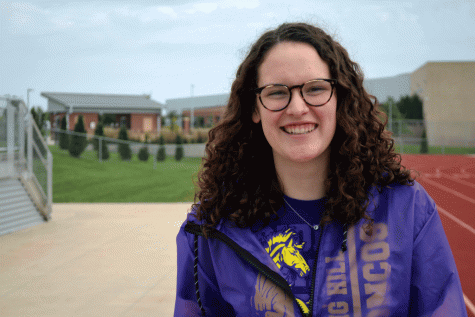
Hi readers. I'm Hannah Smith. I'm StampedeNews.Net's new Copy Editor which means if you weren't already tired of seeing me around here then buckle up because...


